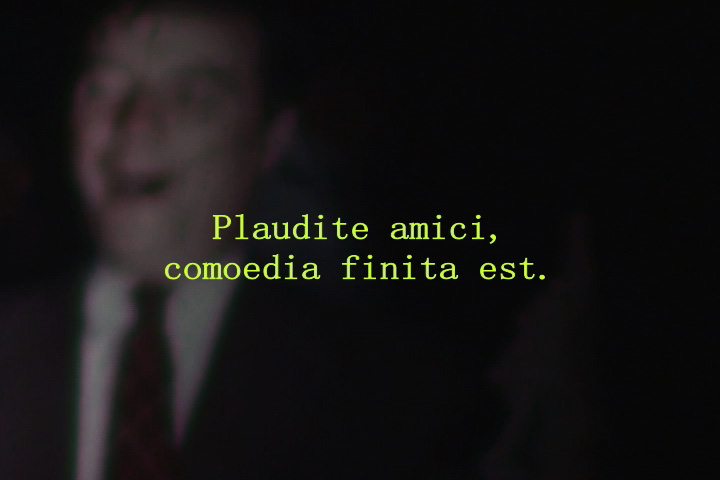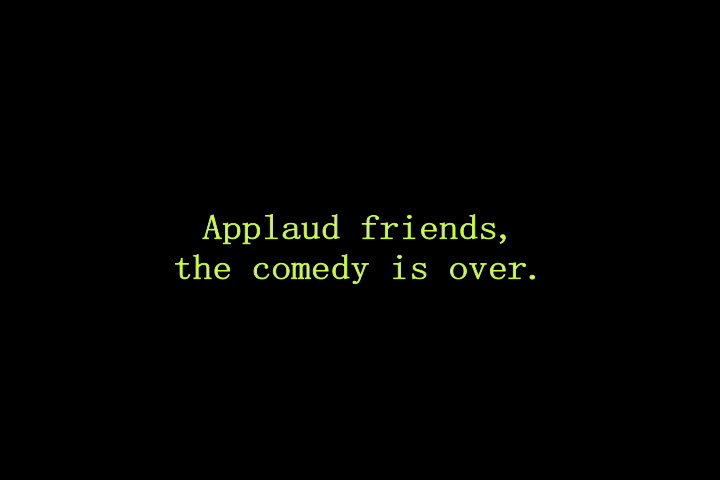[A desktop video in five parts that modestly propose ways of existing with or against history, politics.]
|
|

#1 My Calling Card
From 1986 to 1990, American artist and philosopher Adrian Piper conducted a series of performances she termed "reactive guerrilla performances" and described as "interventions in order to prevent co-optation." The best known of these is My Calling (Card) #1 (for Dinners and Cocktail Parties) . The performances occurred in a particular situation:
At this point, Piper presents them with her card:
While we applaud Piper's interventions, we feel compelled to note certain deficiencies and offer -- as a corrective -- our own version (which, it must be noted, is completely and directly derived from the Piper). The first deficiency is one of scope: we require a calling card that anyone could deploy in any instance of racism, classism, misogyny, homophobia, or intolerance of any kind. Secondly, we prefer work that does not indulge in that increasingly impossible category: autobiography. Sincerely yours, Stephen Paul Reinke
|
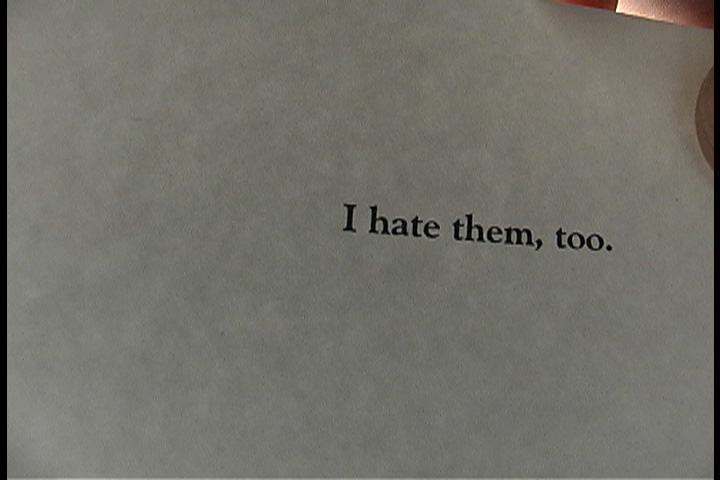
#2 The True Legend of Stereo |
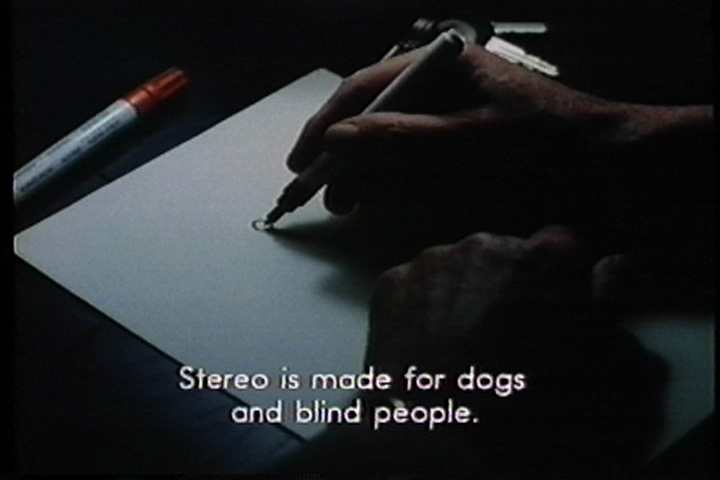
Stereo is made for dogs and blind people.
They always project like this, but they should project this way. Because they project like this, because I, who listen and watch, am here, because I receive this projection as I face it, because I reflect it back, I am in the position described by this figure. This is the figure of stereo. But take this figure and examine it in history now, for stereo also exists in history. There was Euclid and then there was Pascal, Pascal who reflected, and this is the mystical hexagram. But in history, the history of History, there was Germany which projected Israel. Israel reflected this projection, and Israel found its cross. And the law of stereo continues. Israel projected the Palestinian people and the Palestinian people, in turn, bore their cross. That is the true legend of stereo. |
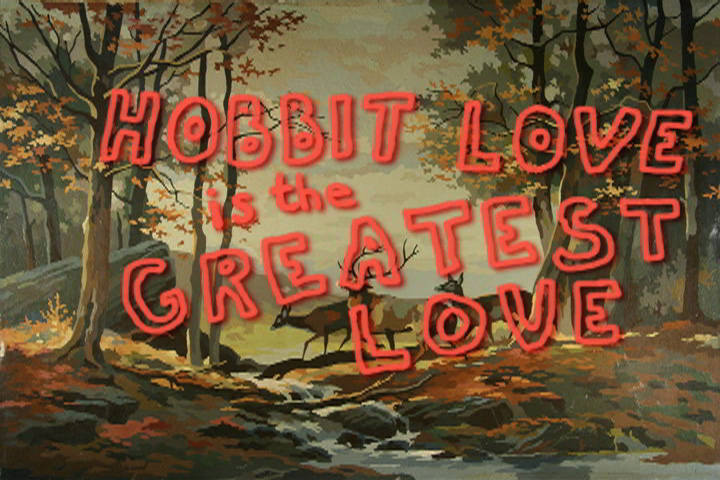
#3 Trauma in Retrospect
In the teleological view of history, things move along to a certain point in the future, a culmination which marks the end of progress, the end of history, and this point is either a heavenly kind of utopia or just apocalypse. In America, it's both. All Americans believe in the Rapture, a worldwide apocalypse in which only they will be saved by being taken up, ascending to the next level. Okay, so that's history. |
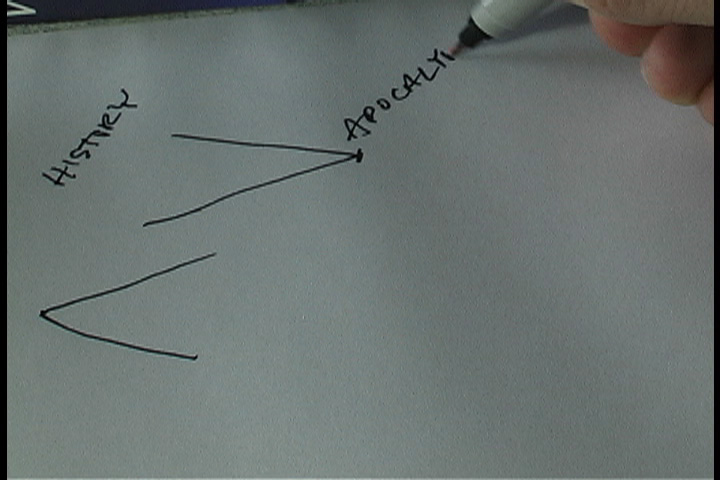
Now for biography. Let's bring it down to a personal, individual level. In the psychoanalytic view of biography, we're here, in the fullness of life, but who we are and what we can do is determined retrospectively, by looking backward to a point of trauma that is the absolute origin of our psychic existence.
So if we combine history with biography, we get this simple but curious diamond figure. We're here now, at the widest part, sandwiched between trauma and apocalypse, trying to keep those jaws open by doing as little as possible.
|
|
These specimens from the Belgian Congo are proof that colonialism ended at least ten years too soon, before the perfection of taxidermy. |
#4 Thusly Spaken
So Chicago -- all of Cook County, really -- has a pretty good Artists-in-the-Classroom program that I was part of this year. They always have a shortage of people for the primary grades, so I happily went there, where the little humans are anyway more fresh. I wanted to be posted somewhere on the northside -- maybe even here in Evanston -- I thought they'd have better crayons and stuff -- but instead I got a southside posting. But the crayons were fine there. Really, its Crayola everywhere, they've kind of got a monopoly. Anyway, my plan was to get the kids to illustrate Nietzsche's Thus Spoke Zarathustra .
Just as Swift's Gulliver's Travels became, over the course of, say, 120 years, a book for children, so, I predict, will Thus Spoke Zarathustra be a children's book by 2040. None of his other books, obviously, just Zarathustra . So, in a way, I'm just trying to stay ahead of the curve. My plan was to take the children's drawings and animate them. It turned out, though, that they didn't really have the skill or patience for the kind of frame by frame pictorial consistency animation requires. And anyway, I was shut down before we could really start. I rescued only this single image. But I presume I'll still be teaching in 2040, and so I'm planning to take this project up again. In fact, it is likely to be one of the last components to Final Thoughts . |
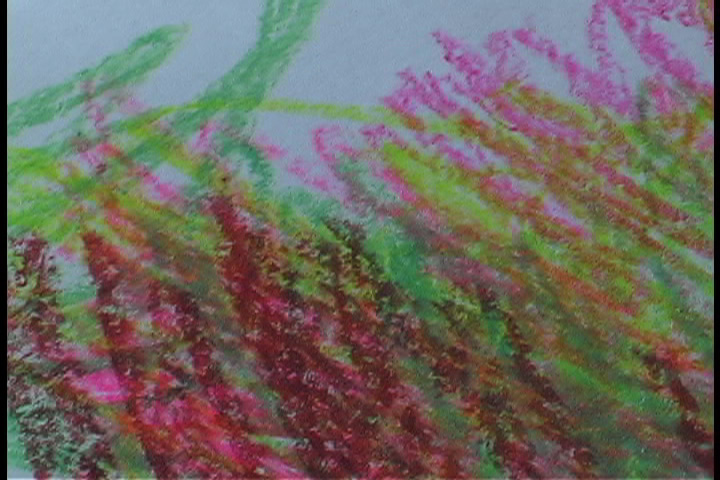
#5 The Fallen
